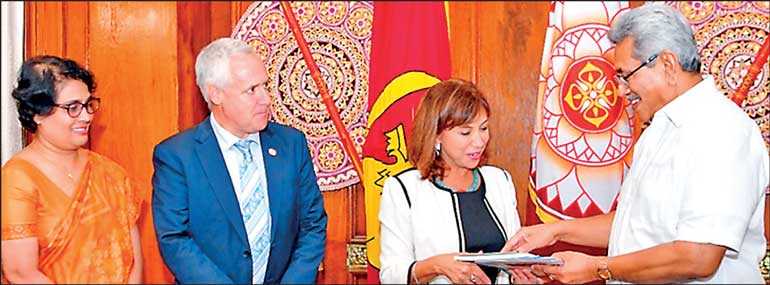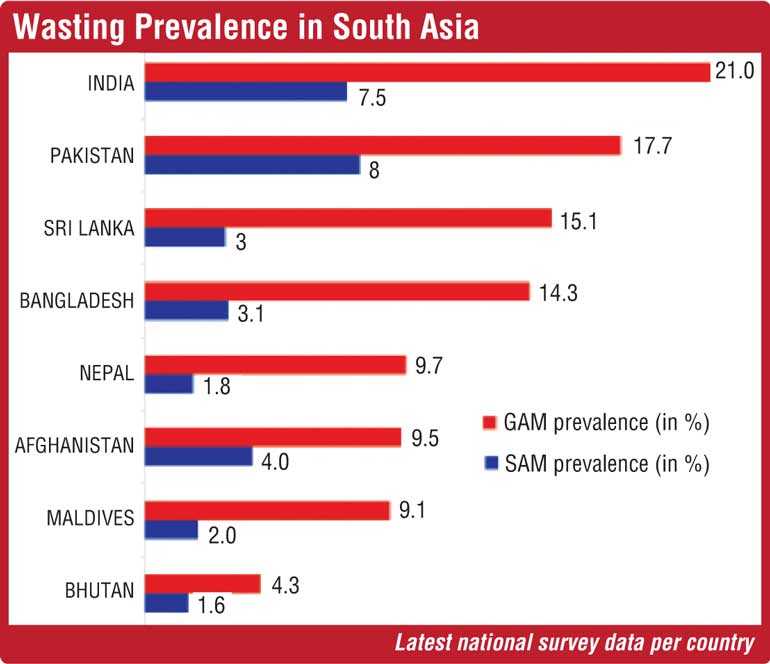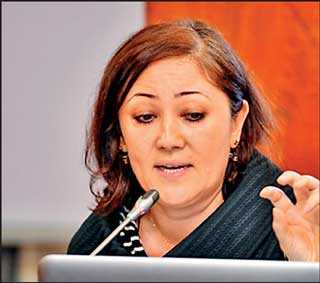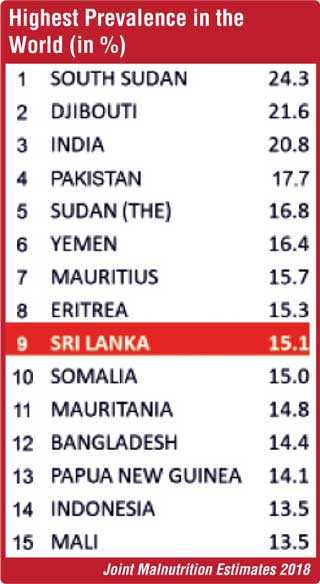Sunday Feb 22, 2026
Sunday Feb 22, 2026
Friday, 28 February 2020 00:00 - - {{hitsCtrl.values.hits}}



Recognising that nutrition is a fundamental building block in a child’s life and is the cornerstone of a child’s development into a healthy and productive adult, a portfolio developed by the UN, World Bank
 |
Dr. Safina Abdulloeva |
and UNICEF was handed to President Gotabaya Rajapaksa today at an event held at the Presidential Secretariat in the presence of Secretary to the President P.B. Jayasundera.
Outlining a vision to end child malnutrition in Sri Lanka, the portfolio consisting of an abridged version of the State of the World’s Children report on why it is imperative to address child malnutrition in Sri Lanka, presented by technical expert Dr. Safina Abdulloeva, UNICEF Sri Lanka and the key findings from the Financial Assessment of Nutrition in Sri Lanka, presented by World Bank Sri Lanka Senior Health Economist Dr. Hideki Higashi.
While Sri Lanka has made great strides in healthcare, maternal, new-born and child malnutrition remains a major problem facing the country, with many children experiencing acute malnutrition, otherwise known as wasting, and chronic malnutrition, otherwise known as stunting.
According to the Demographic Health Survey 2016, the prevalence of stunting, wasting and underweight among children under five years of age remained static at 17.3%, 15.1% and 20.5%, respectively (a level of 15.1% is categorised as ‘very high’). The prevalence of wasting in the country, places Sri Lanka among the 10 worst low- and middle-income countries in the world, with worse rates than Nepal, Bangladesh and Afghanistan.
The irreversible damage of malnutrition to a child’s health and development is enormous. While the problem of wasting increases the risk of stunted growth in a child, which is usually irreversible even if experienced just once; stunting leads to impaired growth and development including of the brain. 
This damage is lifelong and not only hampers a child’s performance in school, but also limits their cognitive abilities, health and work productivity in later life, undermining a country’ sustainable national development.
The forum highlighted that, Sri Lanka has many policies, programs and interventions in place, but these have proven inadequate to tackle the magnitude of the malnutrition issue. Combined with the low, financing for nutrition-specific intervention, indicating rates lower than other countries in the region.
In 2019, President Gotabaya Rajapaksa committed to tacking child malnutrition within the next five years through different interventions as part of his Presidential Manifesto.
Key actions outlined in the portfolio include:
Strengthening coordination, while increasing the coverage and improving the quality of our nutrition-relevant interventions across the country
A multi-sectoral coordination mechanism under the Presidential Secretariat will convene the technical and financial resources of all crucial sectors including Finance and Planning, Health, Education, Women, Child Affairs and Social Security, Agriculture and Water, given the complexity of the nutrition challenge and inequities prevalent across diverse geographic regions
Increasing national budget investments in financing for nutrition interventions. Currently Sri Lanka 0.49% of total Government expenditure on nutrition-specific interventions, and 1% of GDP on nutrition interventions at large, which is low when compared to other countries in the region including Bangladesh and Nepal Implementation of a Multi-Sectoral Action Plan for Nutrition (2018 – 2025) requires the funding support from bilateral and multilateral donors, which will help accelerate efforts to address malnutrition
The event was attended by Government and Development partners including donor agencies.